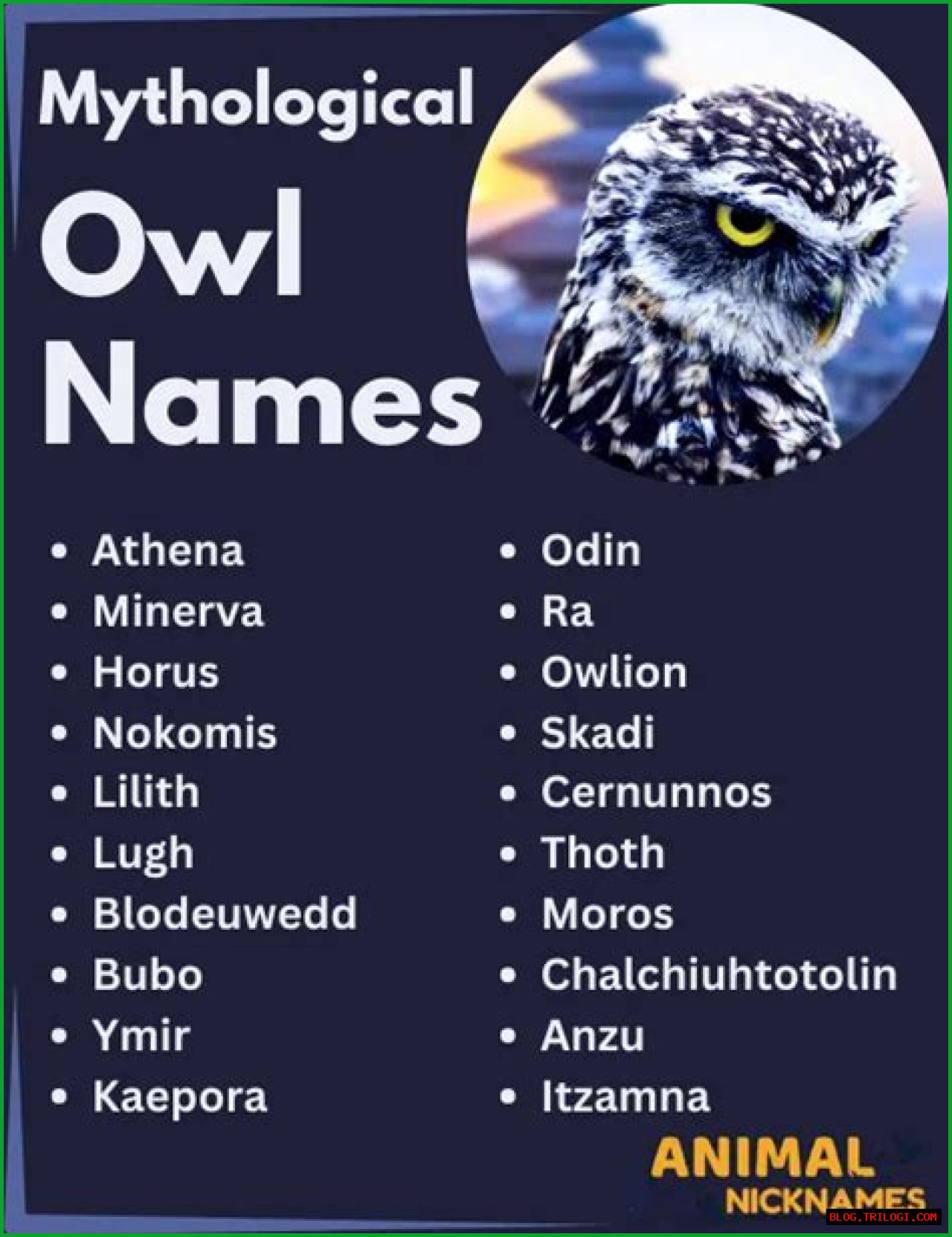Owl names in Greek mythology are not just mere labels; they symbolize wisdom, mystery, and the ethereal connection between the earthly and the divine. In ancient Greece, owls were revered and often associated with Athena, the goddess of wisdom, warfare, and crafts. These majestic birds, with their piercing eyes and silent flight, have fascinated humans for centuries, creating a rich tapestry of lore and symbolism surrounding their existence. Throughout history, these creatures have played a significant role in various myths and stories, often acting as guides or omens.
The owl’s significance in Greek mythology goes beyond its connection to Athena. It represents knowledge, insight, and a deeper understanding of the world. As stories of gods and goddesses unfolded, so did the prominence of owls, often depicted as companions or messengers. In this article, we will delve into the various owl names in Greek mythology and explore their meanings, stories, and the profound impact they have had on ancient culture.
As we embark on this journey through mythology, we will uncover the various facets of owl symbolism and the names that have been bestowed upon these mysterious creatures. From their role in ancient tales to their significance in modern interpretations, the owl remains a potent symbol of wisdom and guidance. Join us as we navigate through the enchanting world of owl names in Greek mythology and discover the stories that have shaped their legacy.
What is the Connection Between Owls and Athena?
Athena, the goddess of wisdom and warfare, is perhaps the most notable deity associated with owls in Greek mythology. The owl is often considered her sacred animal, symbolizing knowledge and watchfulness. According to legend, Athena would often appear with an owl perched on her shoulder, representing her ability to see through the darkness and bring enlightenment.
👉 For more insights, check out this resource.
How Did the Owl Become a Symbol of Wisdom?
Owls have long been associated with wisdom and knowledge, dating back to ancient civilizations. In Greek mythology, this connection is attributed to the owl’s nocturnal nature and its ability to navigate through the dark. The ancient Greeks believed that owls possessed an acute sense of perception, making them ideal symbols of insight and understanding.
What Are Some Notable Owl Names in Greek Mythology?
Several owl names are prominent in Greek mythology, each carrying its own unique story and significance. Here are a few noteworthy names:
👉 Discover more in this in-depth guide.
- Glaux: This is one of the most recognized owl names, directly associated with Athena. Glaux is often depicted as a small, white owl and represents wisdom and watchfulness.
- Chalcis: Named after the city of Chalcis, this owl is known for its intelligence and cunning, often seen as a guardian of sacred knowledge.
- Tyto: This name refers to the barn owl, often featured in various myths as a symbol of mystery and the unknown.
- Strix: In Roman mythology, the Strix is a nocturnal bird associated with witchcraft and the supernatural, showcasing a darker side of owl symbolism.
What Role Did Owls Play in Ancient Greek Culture?
Owls were more than just mythical creatures in ancient Greece; they held significant cultural importance. They appeared on coins, pottery, and various forms of art, often symbolizing wealth and wisdom. The image of the owl was synonymous with Athena, serving as a reminder of her protective and guiding presence.
Why Are Owls Considered Omens in Greek Mythology?
In Greek mythology, owls were often viewed as omens, with their appearances signaling various events or changes. A sighting of an owl could indicate impending wisdom or a warning of danger. This duality of meaning added to the mystique surrounding these birds, further entrenching their place in mythology.
How Do Modern Interpretations of Owl Names in Greek Mythology Differ from Ancient Beliefs?
In contemporary culture, the owl remains a potent symbol of wisdom, but its associations have expanded. While ancient Greeks viewed owls primarily through a mythological lens, modern interpretations often include themes of intuition, introspection, and spiritual guidance. This evolution highlights the enduring fascination with owls and their ability to resonate across time periods.
Conclusion: The Enduring Legacy of Owl Names in Greek Mythology
Owl names in Greek mythology serve as a testament to the enduring legacy of these fascinating creatures. From their profound connection to Athena to their status as symbols of wisdom and insight, owls continue to captivate our imagination. As we explore the rich tapestry of mythology, we uncover not only the stories of these birds but also the deeper meanings they hold within our cultural consciousness.
Whether seen as guardians of knowledge or omens of change, owls remain an integral part of the mythological landscape. Their names echo through time, reminding us of the wisdom that can be found in the quiet moments of reflection and the lessons that can be gleaned from the mysteries of the night.
Unveiling The Life And Journey Of Tomeka ThiamExploring The World Of MKVCinemas MKV: Your Ultimate GuideUnveiling Dave Sparks Net Worth 2024: A Journey Of Success
